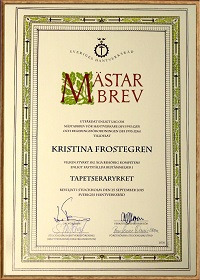
If everyone were to add MP3s rather than MIDIs, this may cause us some concern but ultimately we'd find a way round it. musical instrument sounds more authentic, tempi more accurate). Generally, I would recommend you add MP3s in favour of MIDIs if you think that there is something to be gained from the public in a different format (eg.Please publish as many versions of editions as you deem useful.You may have already had your question answered elsewhere. Very sorry for the delay in getting back to you. Similarly, do you prefer lean MIDI files or is it better to publish much larger MP3 in better quality?Įdit: I tried to register to the forum but it did not like my e-mail address.
MYTIME MERITER COM FULL
I am on the way adding these parts (Monteverdi did not publish them) and would like to know if it is preferable to have two editions of the full score, with and without viols/trombones or if it is advisable to save webspace by having only one edition. I have got a few questions about CPDL policy: Monteverdi mentioned viols/trombones ad libitum for some of his compositions in "Selva Morale et Spirituale". Looks like someone beat me to it :-) - Bobnotts talk 16:04, 5 March 2011 (CST) CPDL Policy Jonathan Jonathang 01:27, 27 February 2011 (CST) You know you can edit the page too, right? -) - Bobnotts talk 10:10, 20 February 2011 (CST) Guatemalan composersĬould I ask you please to create a category for Guatemalan composers? There is one already and there will probably be at least one more. I think you have mistyped Stainer in making the alteration, Bob. Bobnotts talk 07:55, 19 January 2011 (CST) Stainer Te Deum in G I'm sorry I don't know exactly what you name the "work" page? -Bersyl91 17:11, 18 January 2011 (CST)
MYTIME MERITER COM FREE
Please feel free to add it if you wish! - Bobnotts talk 07:55, 19 January 2011 (CST) This very interesting history really belongs on the work page! Richard Mix 16:40, 18 January 2011 (CST) If you want to add anything to the page (in English by preference), feel free. I've just added "Joseph Noyon" on a separate line with the "Arranger" label. N'offrons à ses autels que des cœurs sans partage"

The original text of the "Duo des prêtresses de Diane" is: Thank you again, Bersyl91 17:25, 10 January 2011 (CST)

The history of this piece is very interesting, really. How can we put the arranger's name? It's he which has really *created* the "Ô nuit" piece in changing the tempo, writing for 4 voices SATB instead af 2 women voices with baroque orchestra, etc. Perhaps problems with my e-mail?įor me, it's difficult to know what has to be translated and what hasn't because I see the whole CPDL site in french. I don't know why I was only notified today of the modifications. If you have any further questions, feel free to reply here. However, I have now restored the lyricist's name onto the page. I think I deleted your translation of the "general information" on the basis that this would not normally be translated on a score page. It seems that I was a bit over ambitious in what I deleted. You'll forgive me for forgetting my exact reasoning in that time. my only substantial edit to the page was made about a year and a half ago. I'm not entirely sure I know what you're getting at but I'll have a guess. The only thing is that I didn't figure out where I had to put it correctly.

It's *very* important for this piece as Rameau composed only the theme of the "Duo des prêtresses de Diane" in his opera "Hippolyte & Aricie". Sciortino, arrangement à 4 voix SATB de Joseph Noyon Why did you remove the information I put about the lyricist and the arranger? – Chuck talk Giffen ♫ 02:17, 30 November 2010 (UTC) I replied to your query on Talk:Save us, Lord our God (Charles H. The idea gets my blessing but it may be worth asking on the forums as well, especially to get an idea for which category it would be a sub-category of. Well as this is an interesting subsect, that would make sense. I have to confess to having only just noticed your message. Is it worth adding a category for the few that there are? It is quite rare to come across baroque/classical works which seem to be composed for exclusively women's voices.


 0 kommentar(er)
0 kommentar(er)
